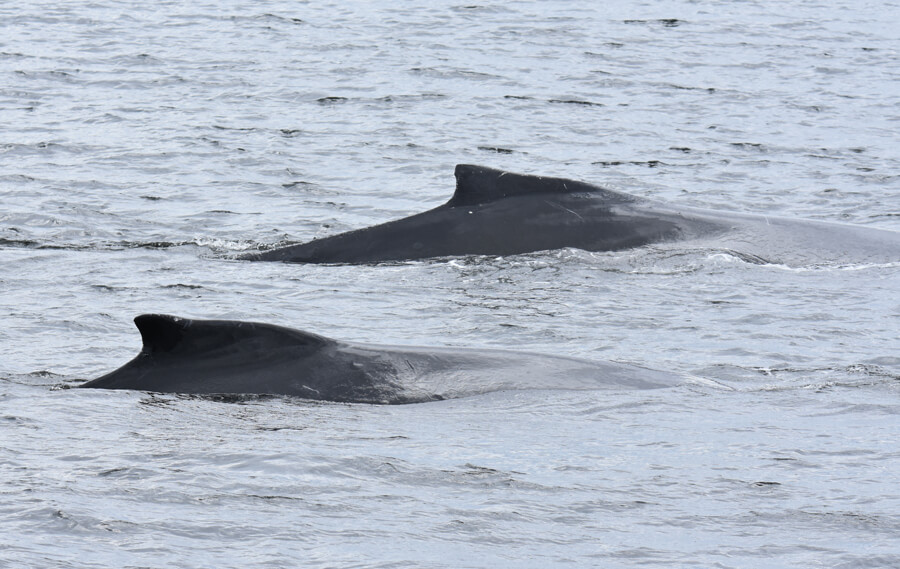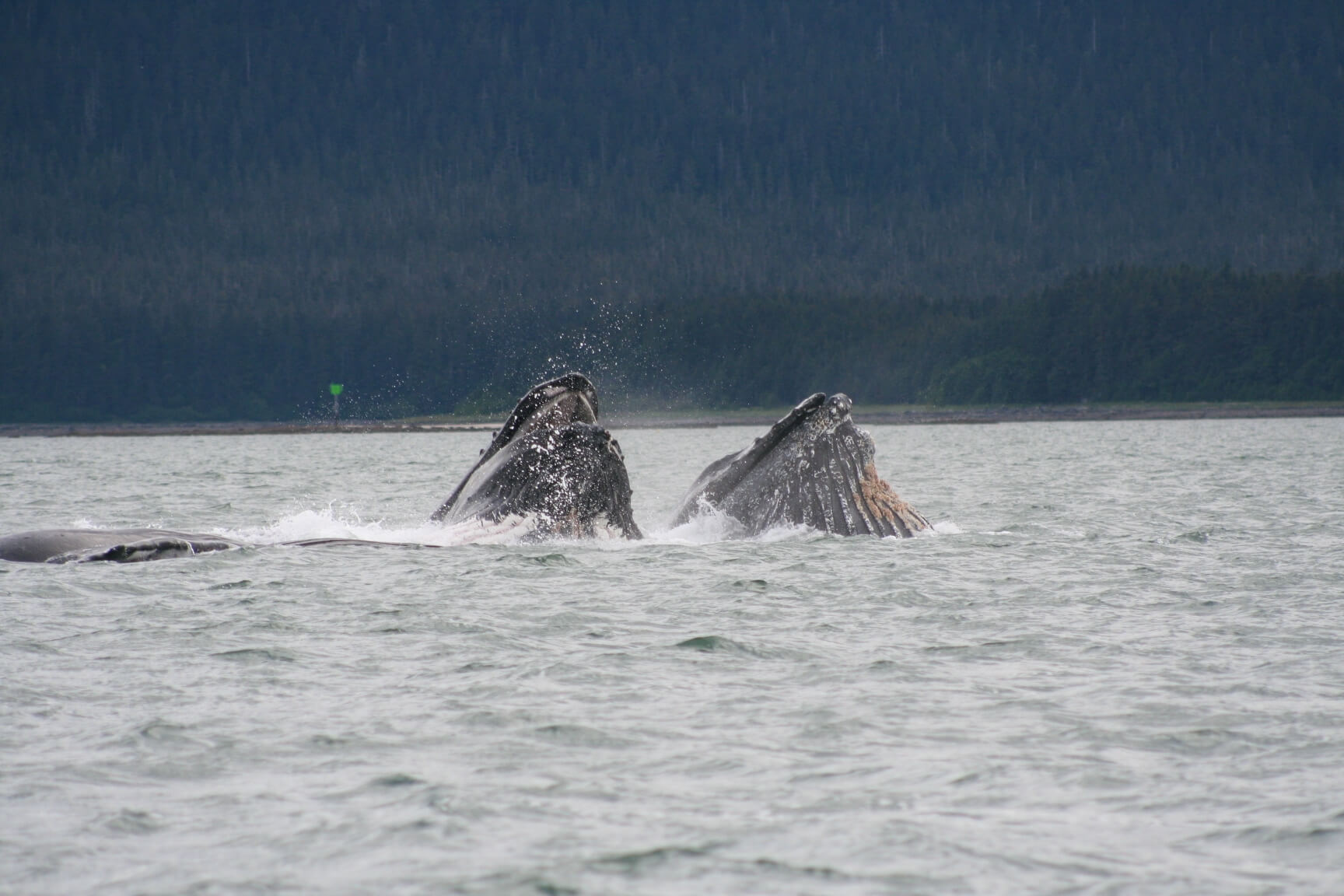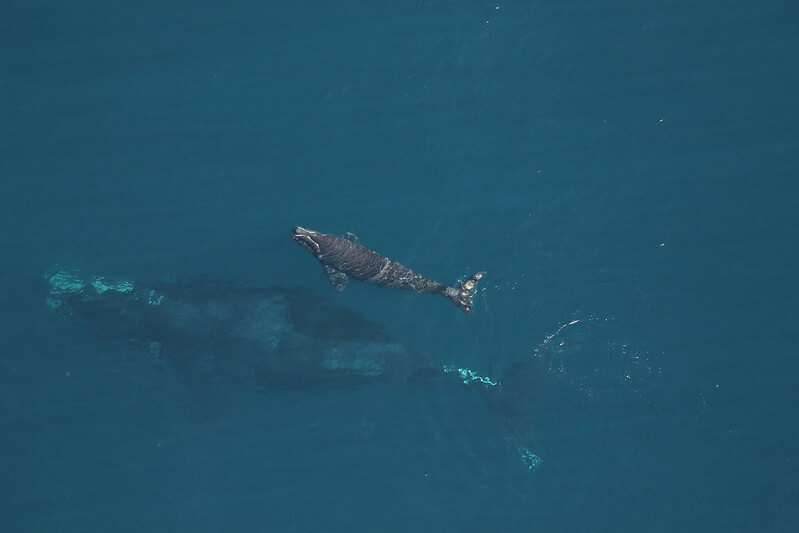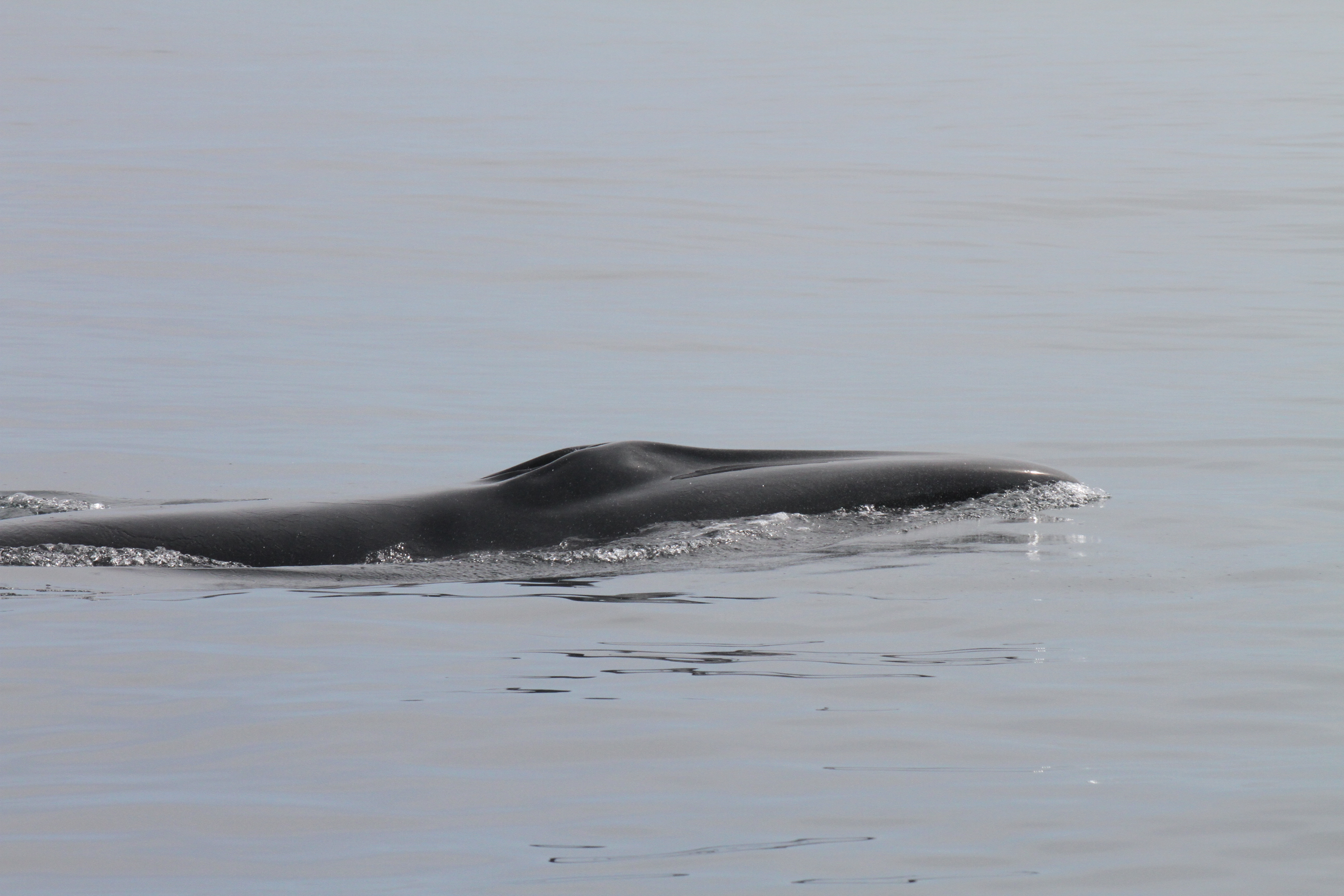Since arriving in the Marine Park area, Tic Tac Toe has been observed multiple times with another female nicknamed Snowball. At the end of last summer, it was with Gaspar that Tic Tac Toe spent all her time. Why are these humpback duos observed in the St. Lawrence feeding grounds?
By hunting in pairs, female humpbacks likely eat more fish!
Indeed, pairing up likely enables them to concentrate their prey more easily while reducing competition for food.
In fact, according to a study on humpbacks in the Gulf of Maine, another feeding area, pregnant females appear to be more likely to team up for extended periods. By doing so, they probably benefit from a greater energy intake as they prepare for calving and nursing.
Why not males?
Males could also potentially benefit from teamwork when feeding. However, unlike females, they do not seem to hunt cooperatively in any sort of lasting way. This may be because they will have to compete for females later in the year!
Many questions remain unanswered. Why do only certain females form pairs? And how do whales choose their “companions”?






